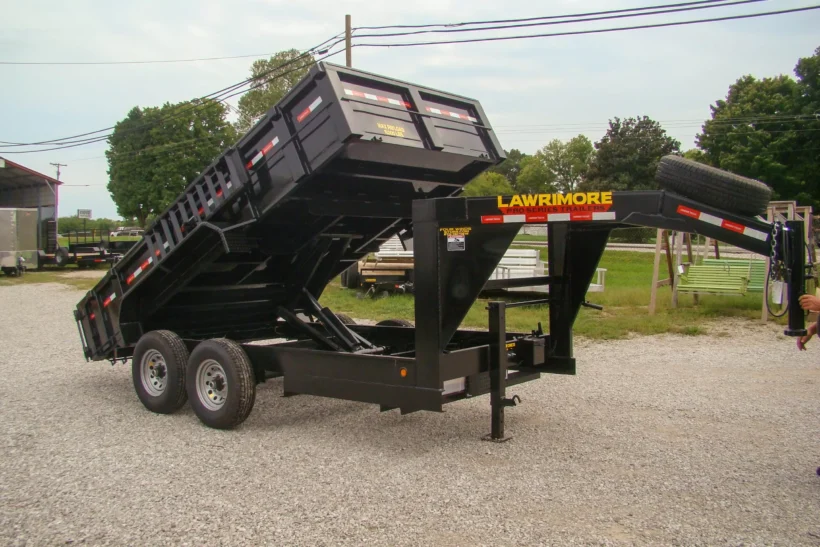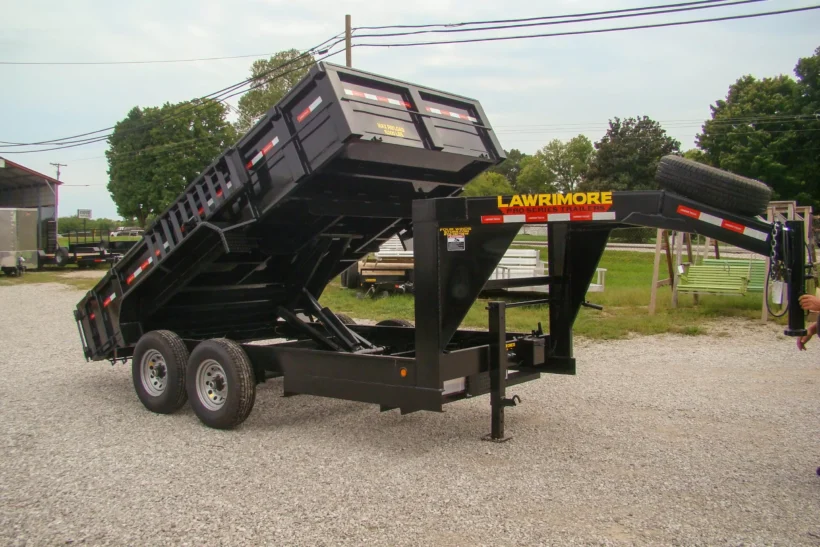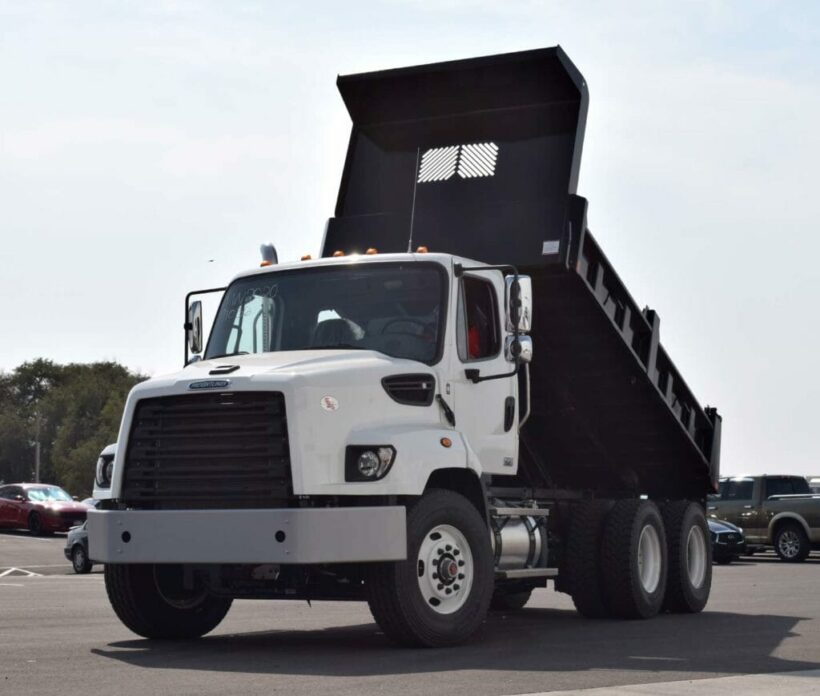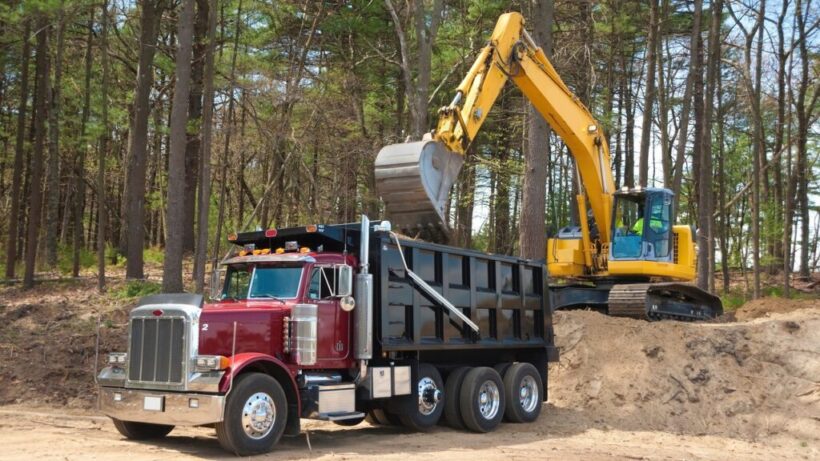Trucks and end dump trailers play a crucial role in various industries, facilitating the transportation of goods and materials. These robust vehicles are designed to handle heavy loads and offer enhanced efficiency and versatility. Understanding the different types of trucks and the purpose of end dump trailers is essential for anyone involved in logistics or construction. Moreover, knowing how to choose the right combination of truck and trailer, considering load capacity, dimensions, and safety considerations, can significantly impact operational success. In this comprehensive guide, we will delve into the intricacies of trucks and end dump trailers, providing valuable insights for a diverse readership.
Types of trucks: Overview of different truck models

Trucks come in various shapes and sizes, each designed to meet specific transportation requirements. Common models include pickup, flatbed, box, and semi-trucks. Pickup trucks are versatile, ideal for personal use and light-duty hauling. Flatbed trucks, featuring an open bed, are perfect for carrying large and heavy items. Box trucks, with an enclosed cargo area, are commonly used for delivering goods. Semi-trucks, also known as tractor-trailers, are the workhorses of the industry, capable of hauling substantial loads across long distances. Understanding the different models empowers businesses to choose the right vehicle for their needs.
Understanding end dump trailers: Definition and purpose
End dump trailers are specialized trailers designed to transport loose materials and unload them efficiently. They feature an open-top design and a hydraulic hoist system that allows the camper bed to tilt backward, emptying its contents. This design enables quick and easy unloading of materials like gravel, sand, agricultural products, and demolition debris. End dump trailers, commonly used in construction, mining, agriculture, and waste management industries, are indispensable for many operations. Whether you’re in the market for a new addition to your fleet or looking for an upgrade, considering an “end dump trailer for sale” can be a wise investment to enhance your transportation capabilities.
Advantages of end dump trailers: Increased efficiency and versatility
End dump trailers offer several advantages that make them highly sought after in various industries. Firstly, their ability to unload materials without manual labor increases operational efficiency and saves time. Additionally, their open-top design allows for easy loading and unloading, reducing labor costs. End dump campers also offer versatility in terms of the types of materials they can transport, making them suitable for a wide range of applications.
Load capacity and dimensions: Factors to consider when choosing

When choosing an end dump trailer, load capacity, and dimensions are critical factors to consider. Load capacity refers to the maximum weight the rV can safely carry. It’s important to ensure that the trailer’s load capacity aligns with the weight of the materials you intend to transport. Additionally, dimensions such as length, width, and height should be considered to ensure that the camper can accommodate the volume and size of the materials. Overloading or choosing a camper that is too small can lead to safety issues and inefficiencies, so careful consideration of load capacity and dimensions is essential.
Choosing the right truck and trailer combination: Matching specifications
Choosing the right combination is vital for optimal performance and safety. It’s crucial to match the specifications to ensure compatibility. Factors to consider include the towing capacity, braking system, and hitch type, which should align with the camper’s weight and design. Additionally, the truck’s engine power and suspension should be capable of handling the trailer’s load. By matching the specifications, businesses can achieve a harmonious and efficient transportation system, maximizing productivity and minimizing risks.
Safety considerations: Tips for secure loading and unloading
Safety is of paramount importance when working with trucks and end-dump RV. Secure loading and unloading practices are essential to prevent accidents and ensure the well-being of personnel and bystanders. To ensure secure loading, materials should be evenly distributed and properly secured within the trailer to prevent shifting during transit. During unloading, the dumping area should be clear of obstacles, and the trailer should be on a stable and level surface to avoid tipping or imbalance. Regular maintenance of the camper hydraulic system and brakes is also crucial to ensure safe operation.
Maintenance and care: Essential steps for optimal performance

Proper maintenance and care are vital for the longevity and optimal performance of trucks and end dump trailers. Regular inspections should be conducted to identify and address any issues promptly. This includes checking tire pressure, inspecting lights and brakes, and ensuring the hydraulic system is functioning correctly. Lubricating moving parts and keeping the RV clean can also prevent corrosion and extend its lifespan. Following the manufacturer’s maintenance guidelines and scheduling routine servicing will help prevent breakdowns and costly repairs, ensuring that they remain reliable and efficient.
Cost considerations: Budgeting for trucks and end dump trailers
Acquiring trucks and end dump trailers is a significant investment for businesses. When budgeting for these vehicles, it’s important to consider not only the initial purchase cost but also ongoing expenses such as fuel, insurance, maintenance, and licensing fees. Additionally, the cost of training drivers and obtaining any necessary permits should be factored in. It may be worth exploring financing options or leasing agreements to manage upfront costs. Conducting a thorough cost analysis and considering the long-term benefits and potential return on investment will help businesses make informed decisions when budgeting for trucks and end dump campers.
Popular applications: Industries that benefit from these vehicles
Trucks and end dump trailers find extensive use across a range of industries. Construction companies rely on them for transporting aggregates, excavated materials, and construction debris. Agriculture and farming operations utilize them for moving crops, soil, and livestock feed. Mining operations rely on trucks and end-dump rV to transport minerals and ores. Waste management companies use them for hauling and disposing of various waste materials. Their versatility and efficiency make them indispensable assets in these industries, contributing to the smooth functioning and profitability of businesses.
Conclusion: Final thoughts and key takeaways for readers

Trucks and end dump trailers play a vital role in the transportation of goods and materials, offering increased efficiency and versatility. By understanding the different types of trucks and the purpose of end dump RV, businesses can make informed decisions when choosing the right combination for their needs. Factors such as load capacity, dimensions, safety considerations, maintenance, and budgeting should be carefully considered to ensure optimal performance and longevity. With their ability to handle a wide range of materials and applications, trucks and end dump trailers have become indispensable assets for industries such as construction, agriculture, mining, and waste management.

